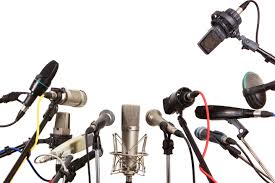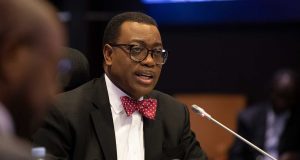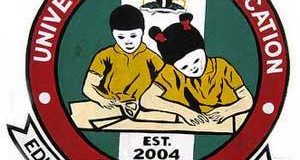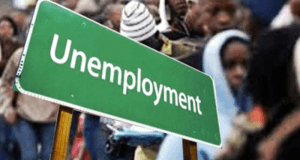The media have been known as one watch dog that is always in danger of becoming all dog and no watching. Left to do as it pleases and it will snooze off in some corner and foul up the air whenever it pleases it. So it needs and often gets occasional kicks on the sides. These may come from scandalized observers, if not from its self-assessment, in order for it to remain on track therefore a special publication which presumes to take up issues that would inform the trajectory of a better nation is perhaps an appropriate platform, and offers the right circumstances, to ignite a much needed media peer review focus.
The knowledge gaps, professional integrity of media practitioners and managers, as well as the credibility of the “fourth Estate of the Realm” as an institution should be a matter of more than passing concern to us today.
Jerusalem, the city of David, the abode of peace, the city of dream and of dream fulfillment, ironically is now the city of contestation for relevance and identity and clash of interest; the pertinent question is, who owns Jerusalem? Somehow, the prophetic profession of journalism now breathes with the spirit of Jerusalem, the spirit of accommodation and contestation, the spirit of identity crises and relevance. Some years ago, the Nigerian Editors conference set out to build on the gains of a similar conference it held a year earlier.
The simple objective of the event was to have media professionals on the front row in an attempt to improve journalism practice in Nigeria. It also had the goal of providing a credible platform for self-critique. The commitment and presence of mind of the organizers was apparent in their choice of “Media as a Catalyst for Good Governance” as the theme for the conference. They were already looking beyond the much vaunted “Watch-dog” role, with its faint suggestion of fault-finding and an applicable commitment to hitting out with anything what so ever that is likely to annoy the people in power. So it was to the credit of Nigerian Editors who took the discussion to the wider role of the media as agents of development and protectors of best practices in all spheres of our social and national life. Half a decade on, we need another take on this noble intention and touch on the collateral matters. What should have followed from that conference in the intervening years was a greater focus on the imperatives of development journalism, especially as it concerns a nation like Nigeria. Of course, this focus is ancillary to the role of the media to upholding good governance, ethical, professional and moral values. Being the only constituency mandated by the constitution to carry out broad and specific duties in furtherance of the overall national interests of the Federal Republic of Nigeria, but without being an arm or department of government it can be its own best friend or worst enemy.
As a further check on the institutions of state and general overseers of the good health of the body politic, the media is itself not as strictly checked and yet it has the curious tasks of trajectory of the wider society. To ensure that these powers are exercised in the best interests of the nation and the profession there is the code of conduct for journalists, with the Nigerian press council as an inconvenient creation of the Military that needs a role-redefinition today. Notwithstanding, many practitioners are either totally remiss in their adherence to the ethics of the profession, or the relevant institutional checks have become less than effective. Whereas the code of conduct enjoins an editor not to publish any material he/she does not believe to be true, the ease with which rumors and speculative reporting is flaunted today creates profound discomfort among professionals and in the wider society. It has often turned out that several misleading headlines were based on the rumors (some of them known to be false) which even the most casual check would have known to be untrue. The usual calculation is that the paper would sell, once the rumour in question is against the government. The other matter concerns how the role of the media as a forum for public discourse can be played with such a bias that the tendentious inclinations are obvious. Once all informed, opinions not only take precedent over the issues being reported, or are presented as the truth then it is no longer journalism at work but something little thought is given to the implications of this practice for the profession, for the reputation of the media houses concerned, and for the credibility of the journalist in question. A gradual, but progressive “TALIBANIZATION” can only demean the profession and it is precisely for this reason that we need serious soul searching and a long overdue Media Peer Review Mechanism. At the level of institutional and personal capacity of individual media houses, many can no longer maintain the integrity of their products and guarantee the loyalty of their staff because of their failure to produce the necessary working tools and pay well and regularly. What is therefore let loose in the society are presumed journalists who are neither loyal to the profession nor to their alleged employers; but who use the organization’s identity card and their space in the paper to pursue personal survival projects.
Also, persons of questionable antecedents, so called stringers (including part time reporters who do not earn fixed and regular pay from the organizations they work) feature too strongly in many media. The patient and detained orientation normally given to new entrants to the profession no longer exists in most media houses. The result is the near-total disappearance of brand consistency and product integrity. Thus we now have correspondents of many media houses who do not really know the editorial policy and house style of their respective organizations. Going by recent revelations and what one reads, it is sad, but true, that some media houses do not really have a house style. The once all important sub-desk is gone!
The changing pattern of ownership and the multiplicity of motives for setting up media houses also account for some of those problems. Another is the proliferation of media houses. Add these to the poor remuneration within the industry you will understand why there is now rowdy assembly of would-be-journalists made up of people who would ordinarily not come anywhere near a media house reader normal circumstances. Seasoned professionals are on a steady retreat, good training facilities that meet international standards are in absolutely short supply, and the very limited investment in training by proprietors of media houses are taking their toll on journalism practice in Nigeria today. Arbitrariness on the part of the employers most of whom appear ill-informed about investment in the media industry is the role rather than the exception. Wages are disproportionately low compared with what obtains in the other sectors of the economy. And for a job that saps the youthful energy mentally and physically, hardly is any thought given to provision for pensions and gratuities. The concept of social security is so alien to journalism profession where material vulnerability is so taken for granted by members who often joke mindlessly that it is a curse to expect end of service entitlement from an employer.
The salary of Nigerian Journalists is pittance. This accounts for the very high turnovers of Journalists in most media organizations as reporters and editors jump from print to broadcast to PR and other sectors where they can earn regular income. Ironically, there is a pull or attraction for this prophetic job among those who do not know the pressures and pains of journalism. It is in the glamour and life style of the average journalist which unfortunately is a mere façade. It is in the supposed influence and connection, the journalist has, when the journalist is the one that falls into the category of use and dump. The popularity the journalist enjoys does not translate to cash. But one fact that we often gloss over is that Journalism is the most open profession given the natural freedom of expression we all enjoy. While the standard academic qualification ordinarily should be a University degree, or HND in Mass Communication, communication Art or Journalism, the truth is, this holds no water in entering Journalism. Every Tom, Dick and Harry that has a flair for writing or has a good voice and face now strays into Journalism. Journalism now has become a profession where somebody who was not clear about his future right from the secondary school and ended up studying just anything finds accommodation in Journalism. It is now a profession where somebody desperately in need of a job, after being kicked out from the bank or could not make the employment list in his area of specialization lands in the newsroom to learn the rope and easily finds a space because he can babble in American accent on air or dazzle with some flair for words. Why would media investors and employers not offer Journalists or media workers peanuts? As salary? When there is no effective professional organ to regulate entry into the profession. So, the failed doctor, lawyer or accountant who has a good voice and the flair to write easily becomes a ready resource person to cover health, judiciary or business and economy as the case may be. The fast pace and smooth talker with vast sports interest is easily employed as sports reporter even if he did not do well in O’level GCE. It is therefore easy for one big man with interest in politics or who just wants to make a name to assemble some desperate people to start a newspaper or FM station, even if they will be paid less than a penny for a job that saps the youthful energy, mentally and physically. In this Jerusalem called Journalism, many are not finding peace, joy and fulfillment because we have not set its standards and qualifications to practice in spite of the existence of bodies like the Nigerian Press Council, the Nigeria Union of Journalists, and the Nigerian Guild of Editors. When RATTAWU or NUJ makes noise, it is not even heard well on the air waves or reported extensively in the papers we work. Journalism is too good to be bastardized, too noble for its practitioners not to live in the abode of peace, comfort and fulfillment.
 Newsfront Online …Telling the Public as it is
Newsfront Online …Telling the Public as it is




